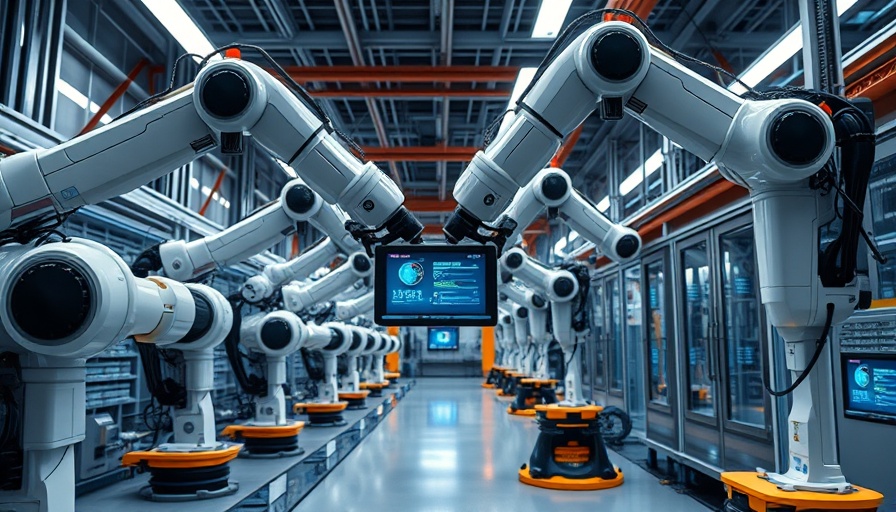
Mastering AI Adoption: Strategies for Enhancing Manufacturing Efficiency
The manufacturing landscape is evolving rapidly, and artificial intelligence (AI) is driving that transformation. As organizations grapple with adopting AI technologies, many are left wondering how to strategically integrate these systems into their operations to realize tangible benefits. In a recent discussion, Chetan Gupta, general manager of Hitachi’s Advanced AI Research Center, outlined how companies can approach AI implementation effectively.
Understanding the Current State of AI in Manufacturing
AI's role in manufacturing is not merely a futuristic aspiration but a practical necessity. Reports indicate that many organizations are struggling to move past preliminary uses of AI, primarily focusing on marketing and back-office functions, rather than how they can leverage AI for operational success on the factory floor. This gap highlights a significant pain point for many manufacturers: shifting AI capabilities from concept to action.
Gupta emphasizes the importance of identifying specific areas where AI can provide a return on investment (ROI). He notes that manufacturers face a landscape where awareness of AI's potential is widespread, but the application often feels stalled. Organizations must ask themselves crucial questions: Where can AI yield the most significant ROI, and what should be prioritized with limited resources?
Highly Effective Applications of AI in Manufacturing
To navigate this challenge, Gupta and other industry leaders outline key categories where AI can enhance operational efficiency:
- Predictive Maintenance: This AI application allows companies to foresee equipment failures, significantly reducing downtime and maintenance costs.
- Quality Control: AI can help detect defects at higher precision rates than human inspectors, minimizing waste and improving product quality.
- Supply Chain Optimization: AI algorithms can analyze vast amounts of historical data to project future demand, allowing more accurate inventory control.
Such applications not only streamline production but also enhance decision-making processes, directly contributing to lower costs and increased productivity.
The Importance of Skilled Workforce for AI Integration
As manufacturing transitions toward greater AI utilization, the demand for properly trained workforce members becomes paramount. The integration of AI into manufacturing is not solely a technical challenge; it requires a cultural shift within organizations where employees need to understand and work alongside AI systems effectively.
Training programs tailored to help employees adapt to these new technologies are crucial. Companies must prioritize developing skills that prepare workers to interpret AI insights and leverage those analytics in their daily tasks. For example, as outlined in a Smart Industry article, AI frees up existing talent from mundane tasks, allowing them to engage in more strategic roles.
Challenges and Risks in AI Implementation
While the benefits are evident, several challenges accompany AI adoption. From data management to implementation costs, organizations must navigate a complex landscape. Gupta warns of the potential pitfalls of not dedicating resources toward data quality and governance, as well as the cultural resistance that might arise from workforce re-skilling initiatives. Furthermore, AI can catalyze economic disparities as companies that swiftly embrace these changes could overshadow those that do not.
Final Thoughts and Call to Action
For CIOs and business leaders, the message is clear: the journey towards adopting AI in manufacturing is complex but essential. By analyzing specific pain points, investing in effective training programs, and maintaining a keen awareness of both potential benefits and risks, organizations can position themselves to thrive in this transformative era.
As we look ahead to the Manufacturing Leadership Summit in Cleveland on May 7–8, 2025, industry leaders are encouraged to engage in discussions about shaping the future of AI-driven innovation. Join us to discover strategies that will help your organization capitalize on the potential of AI technology.
 Add Row
Add Row  Add
Add 




Write A Comment